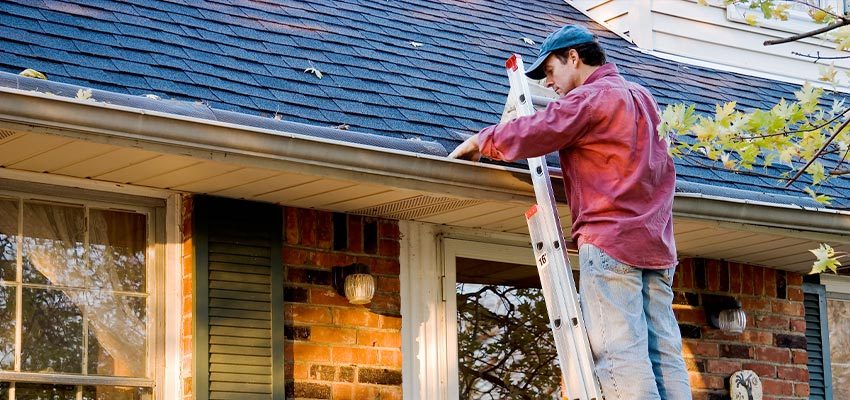Fall Home Maintenance Checklist

Sure, preparing your home for fall might entail decorating pumpkins, putting up a scarecrow, or planting mums in the front yard. However, it should also signify some important household tasks that should be completed before the cold New England weather rolls in. By making maintenance part of your annual fall routine, you can identify potential problems before they arise and help prepare your home and property for the winter months ahead.
We’ve put together a few easy ways to help you prevent costly repairs on your property that could unexpectedly happen during the dead of winter.
Inside your Home
- Many HVAC companies recommend an annual inspection of your heating system. Be sure to hire a qualified technician to inspect and clean your heating system.Remove window A/C units. If you use window air conditioning units in the summer, remove them before the weather turns cold. If you must leave window A/C units in, cover the entire exterior of the unit with an insulating wrap to keep cold air out.
- You may want to consider purchasing a backup generator if you live in an area that sees harsh winter storms. If you have a generator, give it a test run to see if it’s in good working shape. Ensure you never run the generator in an enclosed space — like your garage — as it will present a carbon monoxide hazard. Generators should always run outside.
- Inspect your windows for any leaks that may jeopardize your home’s heating system. If you feel cold air coming in, you can hire a professional to help you, or you can try fixing it yourself is by purchasing a plastic sealing kit from the hardware store.
- Call a professional for a chimney inspection. Depending on how often you use the fireplace or woodstove should determine how often you get it cleaned.
Outside of your Home
- Leaves look beautiful blanketing the ground, but leaving too many leaves on a lawn over winter in a snowy area can inhibit spring growth. Rake or blow the leaves into piles and put them at your curb. Make sure to follow your town’s yard waste requirements.
- Seal gaps where critters could enter. Mice need only a tiny gap to be able to sneak into your house and raid your pantry — and with colder weather coming, all of the little critters out there will be looking for warm places to make a home. Rodent damage is typically not covered under a homeowners policy.
- Clean out your gutters. This will be important for preventing ice dams this winter. Clogged gutters during rainstorms can cause water to pool and damage your roof or siding. Your gutters and downspouts should be kept clean and should direct water away from the foundation of your home, as well as from walkways and driveways, so they don’t become slippery or icy.
- Disconnect outdoor garden hoses and, if it makes sense for your home, use an indoor valve to shut off and drain water from pipes leading to outside faucets. This will help reduce the chance of your pipes freezing during the winter months.
- Clean dryer vents. Lint buildup in dryer vents can make your dryer work less efficiently and even cause a fire — cool, dry fall weather increases static electricity, which can ignite lint that has built up, so now is a key time to get that lint out. You can hire a duct cleaning specialist to clean the vents for you or clean the vent yourself.
New England weather doesn’t plan ahead, but you can. During the fall months, the steps you take can help protect your home and property from potentially expensive damage and emergency repairs in the colder months to come. If you have unanswered questions about protecting your home, we’re here to help! Contact your local Bearingstar agent today.
Back to Blog